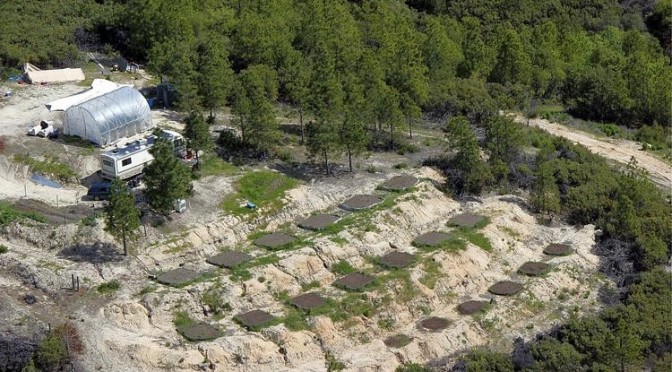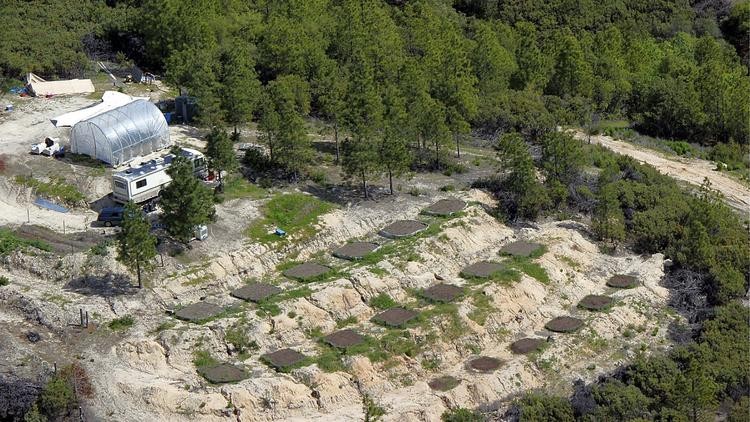Drug Policy Alliance, NORML and Marijuana Policy Project are optimistic. They’re huffing and puffing now, having won 7 out of 8 states with marijuana ballots in the November election. They also smirk knowing that President-elect Trump supports states’ rights for marijuana. In 20 or 30 years, they’ll have freedom and no one else really matters.
Pot lobbyists don’t explain the real picture. What if the whole country ends up just like Humboldt County?
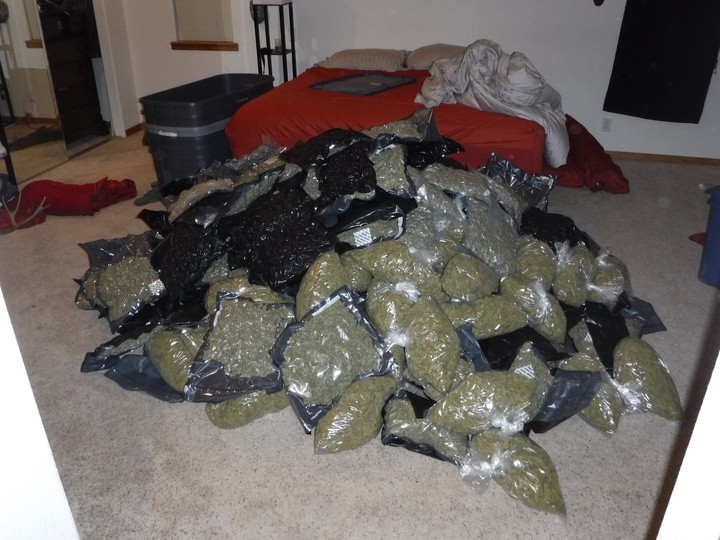
Humboldt County Leads the Way
The oldest, strongest marijuana culture in the USA is not in Colorado, but in Humboldt County, California, part of three-county region called the Emerald Triangle. REVEAL, an online investigative platform, reported on the secretive world of sexual abuse and rapes in marijuana country. (The pop culture magazine Rolling Stone doesn’t want the public to know.) There’s politically-motivated denial and deflection, but heavy weed smokers have lots of delusions.
There were 2,000 domestic violence calls in 2015, an increase of 80% over the previous four years.* A routine domestic violence call in December led to a huge bust for guns and weed. Marijuana gained a foothold in Humboldt nearly 50 years ago, and it seems guns and weed are a way of life since that time.
Humboldt County leads the way in environmental destruction, too. The area used to be dominated by the logging and fishing industries. But as those jobs went away, marijuana became the biggest industry.
See the video about the ecological damage from illicit marijuana grows
Environmental Damage
Environmentalists convinced politicians that the logging industry must stop cutting down the redwoods. So the marijuana growers found an opening and they’re clearing out the trees! Aerial views show the redwood forests pockmarked by marijuana grows. It doesn’t seem that High Times and Alternet have caught on to the irony that marijuana green is not environmentally green.
The marijuana growers have polluted the streams and dried up many river beds.
In May of 2008, approximately 1000 gallons of red diesel overflowed from an indoor marijuana grow’s fuel room into a creek. A marijuana grower had left a valve open when pouring a larger diesel tank into a smaller one. The fuel had spread so far down the rugged stream bed that a neighbor smelled the pungent odor and investigated. He found “20 to 30 pools of red diesel” far below the spill. The environmental cleanup was a massive operation, one of the biggest in California history. The damage from this diesel fuel spill rivals the impact of an oil spill in the ocean.
Marijuana and Fire Damages
Fires are frequent throughout California, and marijuana sometimes causes these fires, including hash oil (BHO) explosions. The massive Soberanes fire this summer uncovered several illegal marijuana sites. Marijuana growers may have started the fire.
Humboldt County has had at least three BHO fires from marijuana labs since California legalized pot two months ago. A home exploded on November 9 in Rio Dell, the first day after the election. The Redheaded Blackbelt noticed “how ironic that on the first day that it is legal to smoke recreational marijuana… that one of the side effects of marijuana prohibition, a black market BHO lab, exploded.” The flames burned 90 percent of the bodies of two victims who were airlifted to Davis. There are rumors that one or both men have died.
The true irony is that after recreational marijuana was legalized in Colorado, these home explosions grew more frequent. In one week of April 2014, there were four BHO explosions. BHO fires didn’t occur in California before 2010, so liberalizing pot laws and expanding marijuana access created a new problem. (In 2010, pot was decriminalized in California.)
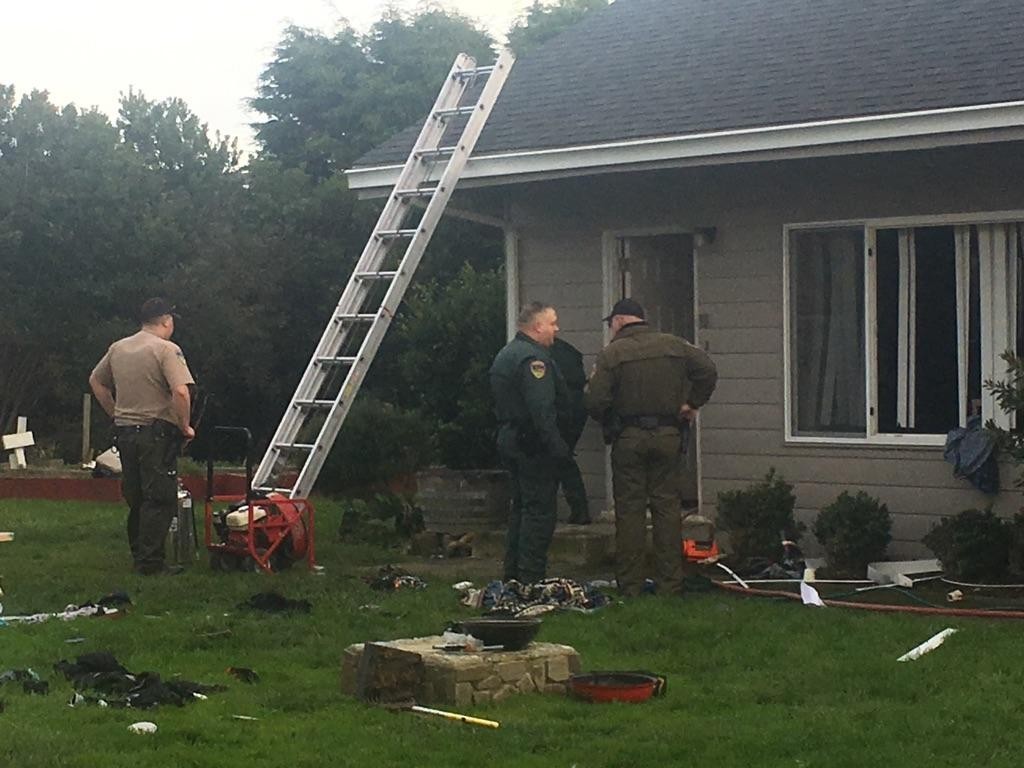
Murders, Suicides and Missing People
If a tv news magazine were to expose the murder, rape and sex trafficking in Humboldt, reporters may be at risk. An investigative journalism report released in September revealed that some trimmigrants and girls end up getting abused or raped. The marijuana apologists mislead by insisting that murders and rapes happen because prohibition forces growers into hiding.
There were at least 22 murders in Humboldt County in 2016. Only 134,000 people live in the county. (Often it’s difficult to distinguish murder from suicide, which occurs at a rate twice the national norm.) Humboldt reported 352 missing people in 2015, more per capita than any other county in the state.
Missing persons include trimmigrants, those who come to the region only in the Fall to work on marijuana farms. Growers also are known to murder these migrant workers, but sometimes the trimmers turn on their growers. There’s even an area of Humboldt called “Murder Mountain.” The site is where a notorious couple carried out cult-like murders in the 1980s, but the tradition seems to continue today.
Nonetheless, Humboldt County has wonderful examples of love and community spirit. Recently, residents of Eureka came out in the heavy rain to honorJennika Suazo, a teen girl who died suspiciously.
An AP photo shows how marijuana growers have bulldozed trees in northern California to make room for pot grows. The environmental damage is worse than from the timber industry.
Domestic Violence, DUIs and Humboldt’s Other Problems
Humboldt County district attorney Maggie Fleming sat down for an interview with Paul Mann of the Mad River Union recently. (The entire article is in Lost Coast Outpost.) “We see DUIs all day long in this community …. There are people who are drinking or using prescription meds or smoking marijuana or using methamphetamine or heroin and driving at 2 o’clock in the afternoon. Some of our fatalities are in the middle of the day,” Fleming explained.
She listed multiple factors powering Humboldt crime: high rates of driving while intoxicated; the county’s nightmarish marijuana, drug and alcohol culture; the prevalence of domestic violence and the deep-rooted poverty that inflicts childhood trauma and impairs children’s health, often with lifelong afflictions, including criminal behavior. She definitely sees the crime as a result of the drug culture. Both those with substance abuse problems and those selling drugs for financial gain instigate the crime.
“I see firsthand how marijuana is a social and environmental disaster,” a policeman from the Emerald Triangle wrote to PopPot.org. “Youth access, abuse, transient population moving in to grow or trim, associated criminal behavior all rising.”
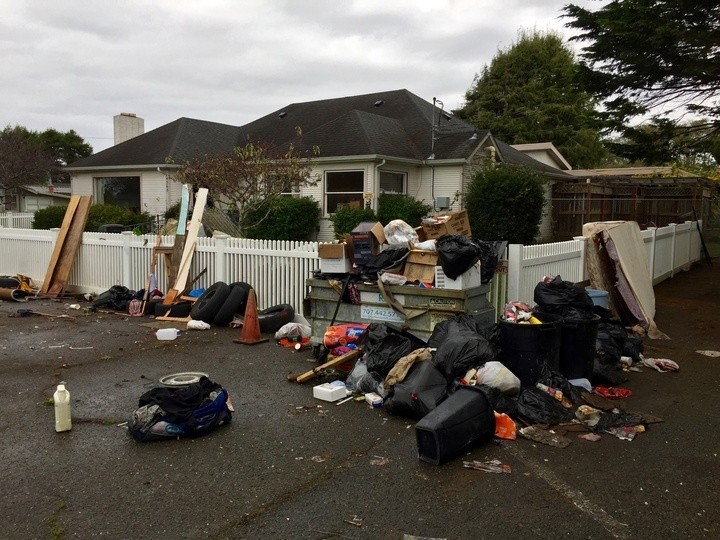
“Where there is pot …there are other drugs…..and all the behavior associated with lives less enabled,” he said. “The money isn’t worth the social cost to our world.”
–Emerald Triangle policeman
Having a marijuana culture adds to the use of other drugs. Laid back from smoking too much dope? Try amphetamines to get back up again.
Acceptance of drugs also leads to rampant alcohol abuse; booze enhances the effect of the drugs. People think the homelessness problem in Humboldt is caused by mental illness, but one social worker in the area disagrees. He is certain that rampant drug/alcohol abuse precipitates the problem. Politicians in both parties remain clueless about how drug use creates mental health problems. Their ignorance will continue as long as it’s politically incorrect to blame pot for anything.
Seven hundred homeless children without parents or guardians in nearby Mendocino County, also part of California’s “Emerald Triangle” growing region. These street kids sometimes work on the pot farms, but basically, no one has ever loved them enough to care for them. They’re likely to become drug users too, and the cycle of multi-generation drug use will continue.
Pueblo is a Warning to Other Places
Four years after Colorado legalized marijuana, the small city of Pueblo is another example of how pot commercialization can destroy life for the residents. “I can no longer allow my 13-year-old to walk the dog, one mother said. There was recently a murder 3 blocks from our house.” Pueblo failed to pass two referendums which would have closed dispensaries and growing sites in the city and county. Some people think of marijuana as an economic panacea for lost jobs in the steel industry. However, it has created a huge increase in the homeless population. Pueblo doctors recently made videos showing the damage marijuana is doing to the health care in the community.
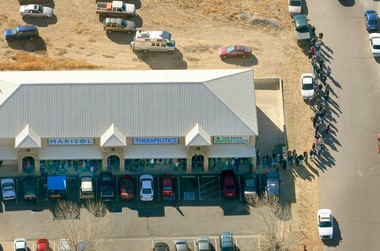
International cartels have moved into Pueblo and bought up property for their marijuana grows. The black market is booming. Russians, Cubans, Argentinians and Cambodians have come to town. Pueblo, Boulder and Denver lead the state in the percentage of high school students using pot, but in Pueblo there are more problems. Fully 12% of high school seniors have also used heroin.
What about America’s future? Is marijuana growing also going to replace tobacco growing in Kentucky and Tennessee? Will it be a substitute for the coal mines that shut down in West Virginia and Pennsylvania? When policy is driven by knee-jerk reactions without careful planning, chaos follows.
At this time, the United States has more than half of the world’s illicit drug users. Six percent of America’s high school seniors are daily marijuana users. It appears that the legacy of drug use is going to continue creating this problem for America’s children. Humboldt County is the future of our country if we continue to believe marijuana use is perfectly harmless and normal.
* This statistic and much of the information on sexual abuse, missing persons, domestic violence, rape and abuse of trimmigants comes from the massive report by Shoshana Walter, published in Reveal, The Center for Investigative Reporting on September 8, 2016.

